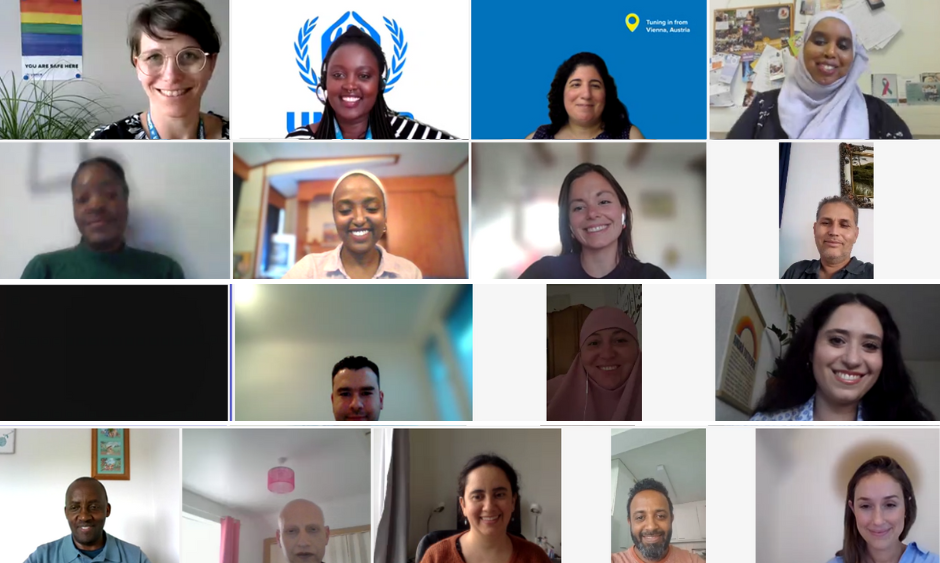Op-ed: We have an opportunity to build a system which protects the dignity of those who seek refuge
Op-ed: We have an opportunity to build a system which protects the dignity of those who seek refuge
Today the Government will publish its long-awaited white paper on ending direct provision. All the indications suggest there will be increased focus on fostering integration and inclusion in local communities.
This was recommended by 2020’s Catherine Day Report, as was moving away from accommodating people in centres, a number of which are located in isolated settings with limited transport links to local towns.
With asylum seekers in Ireland already benefiting from significant improved rights to work (especially compared with many of our EU counterparts), the new system promises to significantly improve living conditions for asylum seekers and promote positive links with their communities – this can only benefit Irish society in the long term.
However, issues with direct provision are not, and never were, solely related to the accommodation system. Long periods waiting for decisions on applications have historically hampered the ability of people to integrate into their communities once they’ve received refugee status.
Currently, most asylum seekers can expect to wait at least a year and a half for a decision on their application, a situation exacerbated by the pandemic. In 2020, the median processing time for international protection applications by the International Protection Office (IPO) was 17.6 months.
The median processing time for all international protection appeals by the International Protection Appeals Tribunal (IPAT) was nine months.
In its 2021-2023 Statement of Strategy, the Department of Justice said it was committed to eliminating backlogs in all immigration application types.
The details have yet to be provided on how this will be achieved, but it is important that the Government is looking into this now.
Fair and efficient procedures will be critical to the success of any new system. They benefit refugees by ensuring swift access to safety and reducing uncertainty. But they also benefit governments by reducing procedural costs while respecting human rights principles, decreasing the overall demands on the reception system.
In addition to processing times, outcomes at the end of the process also have a significant impact on the system. Currently over 1,000 people granted permission to live in Ireland remain in accommodation centres in need of housing in the community.
While official homeless statistics show a 16pc decline last year, no equivalent drop was seen for those living in the direct provision system with status.
This is despite an annual drop in the number of new asylum applications of 67pc to 1,566, the lowest number of new applicants observed since 2014.
The simple truth is that unless national housing policy is capable of generating sufficient numbers of suitable housing units to meet the needs both of refugees and the local community, then this is always likely to give rise to local tensions and put increasing pressure on the accommodation system for asylum applicants.
Equally, fair and fast asylum procedures go hand in hand with safe returns for those not deemed to be in need of protection. It is important to the credibility of the entire asylum system that those who are found not to be in need of international protection can be returned promptly to their country of origin in safety and with dignity.
Whatever the ambitions of the white paper, it is safe to say that direct provision centres will be relied upon to accommodate people for some time yet. The current system has been over-capacity since 2018 and, as a result, has relied upon emergency accommodation, temporary centres, hotels and B&Bs, to accommodate significant numbers of asylum applicants.
Over 1,000 people remain in such settings where access to appropriate services can be challenging.
Furthermore, the standard of accommodation provided can vary significantly from centre to centre. The Government has a long-standing commitment to applying National Standards, published in 2019, to centres.
There has also been a commitment to establishing an independent system of inspections, with engagement ongoing with Hiqa on taking up this role. In order to ensure that Ireland meets its legal commitments to those in the system during the transition period, emergency accommodation must be phased out as soon as possible and appropriate accommodation standards maintained.
It’s fair to say that expectations in the sector have never been higher, but equally, there is concern around the practicalities of implementing such ambitions and the risks of transitioning to a radically different system.
Following years of policy makers over-promising and under-delivering, implementation plans will be scrutinised closely, and significant progress will need to be demonstrated over the coming months and years in order to instil trust in the process.
Despite all the challenges however, this is a unique opportunity, built upon a significant commitment in the Programme for Government.
If this moment is seized, there is no reason why we can’t build a system that protects the rights and dignity of those who seek refuge here while promoting more cohesive and socially engaged communities in the process.
On the 70th anniversary of the signing of the Refugee Convention, that would be a lasting legacy that Ireland could be proud of.
This article was first published in the Irish Independent on 26 February 2021





